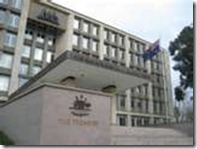Software R&D – policy intent “outdated”
The Treasury paper acknowledges that the treatment of software R&D is a “complex area” that requires further consideration and consultation. Importantly the Treasury is asking industry stakeholders to suggest alternative approaches.
The present arrangements that require that to be eligible for the concession software activities must meet a multiple sales test in addition to all the other definitional requirements of eligible R&D activity were created to effectively exclude from the concession all in-house software development. This was a Government policy decision primarily aimed at excluding from the concession research or development costs that delivered benefits that were not likely to produce net-benefits for the Australian community. As the Treasury paper notes:
“A public subsidy for R&D should generate additional R&D activity with benefits that spillover to other firms and the community.”
The ‘multiple sales test’ was, as Treasury has rightly noted, introduced around 20 years ago. Much has changed since then in the business world and in the field of software research and development.
In particular software development is today an integral part of a significant proportion of industrial research and development. In addition, the multiple commercial models of open source based software development that do not fit the traditional sales paradigm and blended software development models producing substantial intellectual property portfolios necessitate a structural rethink of the application of the R&D concession to software.
Treasury are to be congratulated for recognising these shifts and for being prepared to engage industry in the modernisation of this important taxation concession.
The full Consultation paper is available at The Treasury's website and submissions are requested by Monday, 26 October 2009.
Simon Edwards Head of Government Affairs
